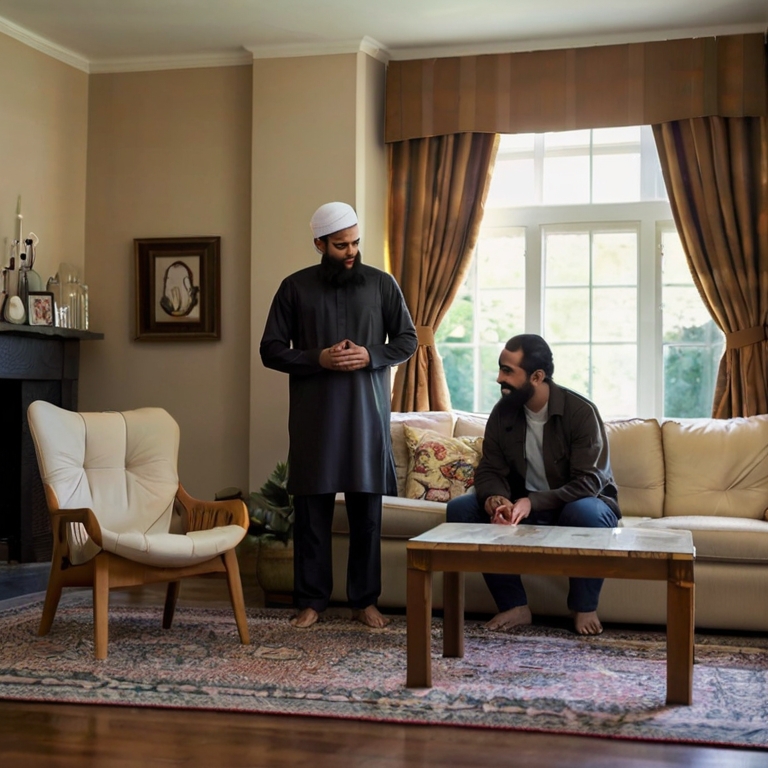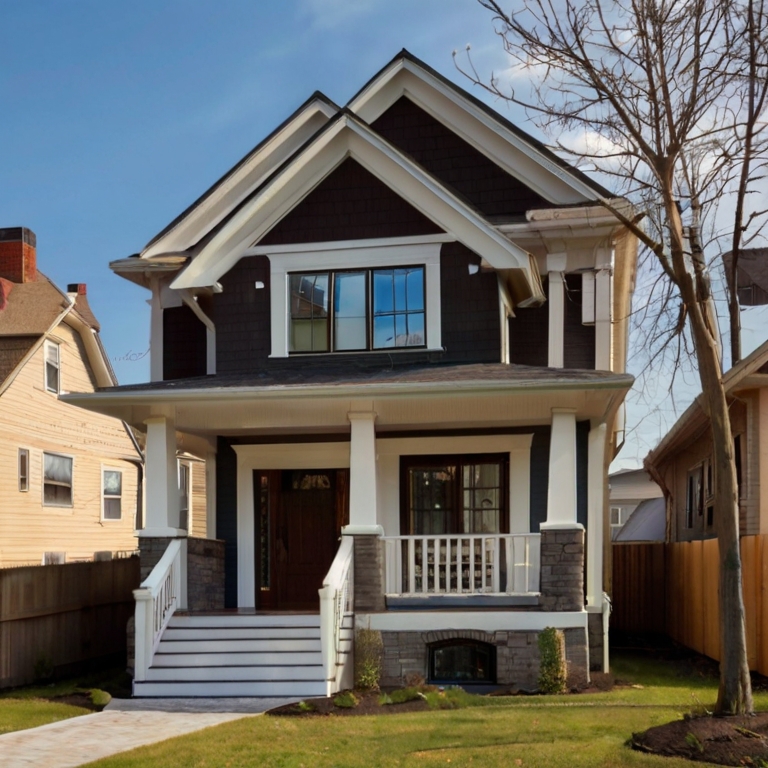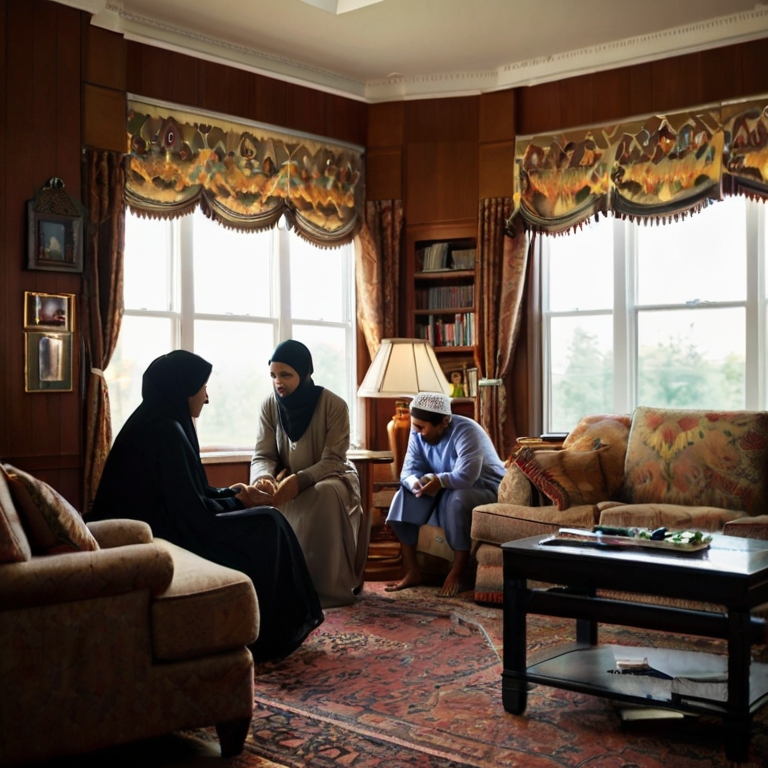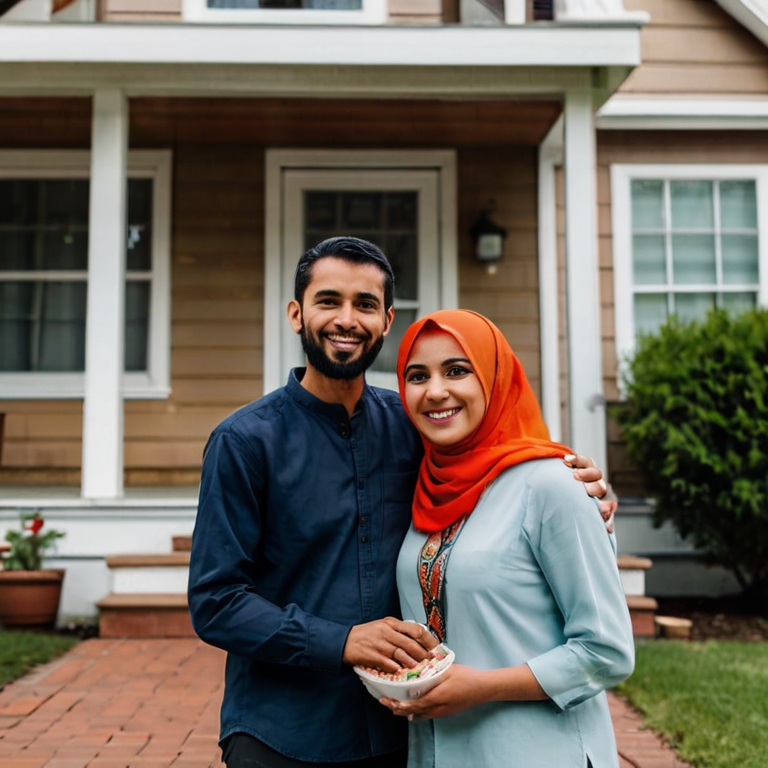The Financial Impact of Choosing Sharia Compliant Mortgages
n the complex world of home financing, Sharia compliant mortgages offer a distinct option that aligns with Islamic legal principles, primarily avoiding interest, which is considered usury under Sharia law. Unlike traditional mortgages that are based on paying interest over the loan amount, Sharia compliant mortgages work on different financial models such as profit-sharing, leasing, and joint ownership. While these models provide a morally and legally permissible way to finance a home for observant Muslims, they often come with unique financial implications. This article dives into why choosing a Sharia compliant mortgage might cost more, examining the underlying principles of risk sharing, specific fee structures, market availability, and the long-term financial impacts of such a decision. By understanding these factors, potential homeowners can make informed decisions that respect their religious convictions while being aware of their financial implications.

Introduction to Sharia Compliant Mortgages
Sharia compliant mortgages, also known as Islamic mortgages, are structured to comply with the Islamic laws on finance, which prohibit earning or paying interest (riba). Instead of traditional interest-based lending, Islamic finance relies on structures that reflect real economic transactions such as profit-sharing (Musharaka), leasing (Ijara), and joint ownership.
Musharaka involves the bank and the borrower entering into a partnership where both invest in the property and share the profits and losses according to their respective equity shares. Over time, the borrower can buy out the bank's share, eventually gaining full ownership of the property.
Ijara works similarly to leasing; the bank buys the property and leases it to the borrower. The lease payments do not constitute interest but are part of a rental agreement, and the property's title may transfer to the borrower at the end of the lease term or through separate purchase installments.

Diminishing Musharaka is a popular model combining elements of Musharaka and Ijara. The borrower and the bank share the ownership of the property, with the borrower regularly buying out the bank's share until full ownership is achieved. Each payment increases the borrower's share in the property and decreases the share of the bank, simultaneously covering a rental portion for the use of the bank's share of the property.
These models aim to provide a way to finance purchases that are free from the concept of riba, ensuring that all transactions are backed by tangible assets and that both parties share the risks and rewards equitably. This alignment with Islamic principles makes Sharia compliant mortgages an attractive choice for observant Muslims looking to purchase a home without compromising their religious beliefs.
The Concept of Risk Sharing
One of the foundational elements of Sharia compliant mortgages is the concept of risk sharing, which distinguishes these financial products from traditional interest-based loans. In conventional financing, the risk is predominantly borne by the borrower, who is obligated to pay interest on the loan amount regardless of their financial situation or changes in market conditions. In contrast, Sharia compliant financing ensures that both the lender and the borrower share the risks and rewards of the investment.
Shared Risk and Rewards: In models like Musharaka and Diminishing Musharaka, both the financial institution and the borrower invest together in the property. This partnership means profits and losses are shared according to their respective investment shares. This aligns with the Islamic principle of fairness and discourages predatory lending practices.

Impact on Costs: While risk sharing has ethical and social benefits, it also introduces a layer of complexity in determining the costs associated with Sharia compliant mortgages. Because the lender is also an investor, they may charge administrative fees or higher profit rates to mitigate the risk of loss. This shared risk model can lead to higher initial costs when compared to traditional loans, where lenders earn their income primarily through fixed interest rates.
Protection Against Default: Additionally, the risk-sharing model provides a built-in protection against default. Since the financial institution shares in the ownership of the property, they have a vested interest in the property's success and maintenance. This can lead to more cooperative arrangements between the lender and borrower during financial hardships, unlike conventional mortgages that may lead to foreclosure without such flexibility.
The concept of risk sharing is central to the appeal of Sharia compliant mortgages, offering a more balanced financial agreement that aligns with ethical banking principles. However, it's important for potential borrowers to understand how these principles can affect the overall cost of their mortgage, as the unique risk-sharing arrangement may come with higher fees and different financial obligations compared to standard mortgages.

Additional Fees and Contract Structures
Sharia compliant mortgages often involve different fee structures and contractual agreements that can influence their overall cost. These fees are not interest-based but are designed to comply with Islamic principles, leading to different financial implications for the borrower.
Non-Interest Fees: Unlike traditional loans, which primarily generate cost through interest rates, Sharia compliant products involve various types of fees. These can include upfront fees (often termed as processing or administrative fees), periodic profit rates (akin to rental payments in Ijara), and profit-sharing margins in the case of Musharaka. Each type of fee reflects the bank's role as a business partner rather than just a lender.
Contract Complexity: The contracts for Sharia compliant mortgages are typically more complex than those for standard mortgages. This complexity stems from the need to structure transactions in a way that avoids interest while ensuring compliance with Islamic laws. Contracts must clearly outline the terms of profit sharing, property buy-back agreements, and the transition of property ownership, which can involve extensive legal and clerical work, thereby increasing the overall cost.
Higher Transaction Costs: Due to the intricate nature of these contracts and the requirement for continuous compliance with Islamic law, Sharia compliant mortgages may incur higher transaction costs. These costs cover the efforts of Sharia boards, which oversee the products to ensure compliance, and additional administrative work required to structure and maintain these agreements.

Potential for Additional Liabilities: In some cases, the structure of Sharia compliant products might expose borrowers to additional liabilities. For example, in a diminishing partnership, the borrower not only pays rent on the portion of the property not owned but also must finance the purchase of the bank’s share over time. This dual financial obligation can be costlier than a straightforward mortgage payment, affecting the affordability of the mortgage.
Understanding these fees and the complexity of contracts is crucial for potential borrowers. These elements can significantly impact the total cost of the mortgage and should be carefully considered during the decision-making process. While they provide a way to avoid interest, the financial trade-offs require thorough evaluation.
Market Dynamics and Availability
The availability of Sharia compliant mortgages and the dynamics of the market in which they operate can significantly affect their pricing and attractiveness to potential borrowers. As a niche financial product, these mortgages are subject to specific market forces that shape their costs and accessibility.
Limited Availability: One of the primary factors that can drive up the costs of Sharia compliant mortgages is their limited availability. Unlike conventional mortgages, which are widely offered by numerous financial institutions globally, Islamic mortgages are offered by a select number of banks that specialize in Sharia-compliant products. This limited competition can result in higher costs due to the lack of price competition.

Niche Market Expertise: Banks offering Sharia compliant mortgages often possess specialized expertise, which can add to the cost. Developing and maintaining expertise in Sharia finance requires investment in training and the development of products that comply with Islamic law, which can be passed on to consumers in the form of higher fees.
Regulatory and Legal Framework: The regulatory and legal framework surrounding Sharia compliant mortgages can also influence their cost. In regions where these products are less common, the lack of established legal frameworks can pose challenges and uncertainties for both lenders and borrowers, potentially leading to higher costs associated with legal compliance and risk management.
Economies of Scale: Due to their niche status, Sharia compliant mortgages often do not benefit from economies of scale that are available to more mainstream financial products. The smaller volume of transactions and the bespoke nature of many agreements mean that costs cannot be spread as thinly, contributing to higher overall costs for the borrower.
Consumer Demand and Market Growth: The demand for Sharia compliant mortgages is growing, particularly in regions with significant Muslim populations who seek financial products that align with their religious beliefs. As demand increases, there could be potential for more competition and better economies of scale, possibly leading to lower costs in the future.

Understanding the market dynamics and availability of Sharia compliant mortgages is essential for potential borrowers. It not only affects the immediate costs but also the long-term viability and affordability of choosing such a mortgage. Awareness of these factors can help borrowers make informed decisions that align with both their financial and ethical considerations.
Long-term Financial Implications
Choosing a Sharia compliant mortgage over a traditional mortgage involves not only immediate financial considerations but also long-term implications that can affect a borrower’s financial health. It’s important to understand these implications to make an informed decision that aligns with both financial goals and ethical commitments.
Potential for Higher Overall Costs: Due to the structures and fees discussed previously, the total cost of owning a home through a Sharia compliant mortgage may be higher than with a traditional mortgage. While the absence of interest may seem beneficial from an ethical standpoint, the alternative profit rates, administrative fees, and the risk-sharing nature of these mortgages can accumulate, leading to a higher overall financial burden over the life of the mortgage.
Impact on Asset Accumulation: In Sharia compliant financing structures like diminishing Musharaka, the borrower gradually buys the property from the bank. This process can be more cost-intensive up front, affecting how quickly borrowers can build equity in their home compared to traditional loans where equity builds predictably with each interest and principal payment.
Resale Value and Marketability: The resale value of properties purchased with Sharia compliant mortgages can be influenced by the same market dynamics that affect their availability and cost. In markets where Islamic finance is less understood or less in demand, the resale of such properties might pose challenges.

Flexibility During Financial Hardships: One of the advantages of Sharia compliant mortgages is the built-in flexibility during financial hardships, such as income loss. Due to the risk-sharing nature of these agreements, lenders might be more inclined to work with borrowers to find solutions that avoid foreclosure, a benefit that can have significant long-term financial and emotional advantages.
Alignment with Financial and Ethical Goals: For many borrowers, the decision to choose a Sharia compliant mortgage is not solely financial but also ethical. The assurance that their large-scale investment complies with their religious and ethical values can provide intangible benefits that are considered just as important as the financial outcomes.
Understanding these long-term implications is crucial for anyone considering a Sharia compliant mortgage. It ensures that borrowers are not only making a choice that fits their immediate financial needs but also one that aligns with their future financial stability and ethical values.
Conclusion
Choosing a Sharia compliant mortgage is about more than just financing a home—it's a commitment to a financial practice that aligns with Islamic ethical principles. While these mortgages offer an interest-free structure that adheres to Sharia law, they come with unique costs and considerations that can influence both the immediate and long-term financial landscape for borrowers.
Potential homeowners must weigh the higher upfront costs, complex contract structures, and the potential for higher overall expenditures against the ethical benefits and the risk-sharing advantages that these mortgages provide. Furthermore, the evolving market dynamics and the growing demand for Islamic financial products could pave the way for more competitive pricing and improved accessibility in the future.
As the market for Sharia compliant mortgages continues to develop, it remains important for borrowers to stay informed and seek advice from financial experts specialized in Islamic finance. By doing so, they can navigate the complexities of these financial products and make choices that best suit their financial capabilities and ethical values.





